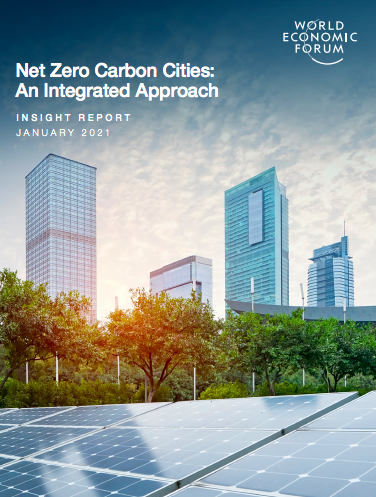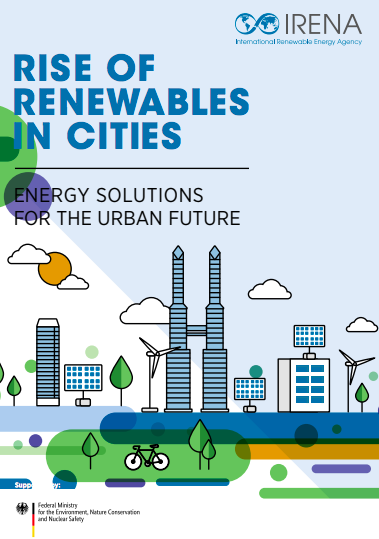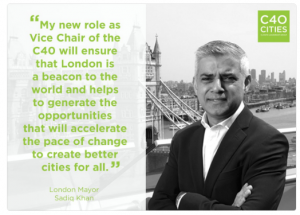Site search:
-
What’s new?
Energy for London Tags
Brent Buildings Camden Carbon Emissions CHP Cities Climate Adaptation Community Heating Community Initiatives Croydon Data DECC Decentralised Energy Distribution ECO Energy Costs Energy Efficiency Enfield FIT Fuel Poverty Funding Green Deal Hackney Haringey Housing Islington Lambeth Library Local Authorities Mayor Newham Ofgem Olympics Photovoltaics Planning RE:FIT RE:NEW Renewable Energy Retrofit Southwark Tower Hamlets Transport Waltham Forest Waste WestminsterEnergy Archives:
- February 2021 (1)
- January 2021 (15)
- December 2020 (15)
- November 2020 (9)
- October 2020 (3)
- August 2020 (5)
- July 2020 (3)
- June 2020 (4)
- April 2020 (10)
- March 2020 (5)
- February 2020 (2)
- January 2020 (3)
- October 2019 (1)
- September 2019 (4)
- August 2019 (2)
- July 2019 (1)
- August 2018 (1)
- November 2016 (8)
- October 2016 (8)
- September 2016 (2)
- August 2016 (8)
- July 2016 (14)
- April 2016 (12)
- March 2016 (16)
- February 2016 (8)
- January 2016 (4)
- December 2015 (1)
- November 2015 (1)
- October 2015 (16)
- September 2015 (3)
- June 2015 (1)
- May 2015 (1)
- April 2015 (1)
- March 2015 (1)
- February 2015 (1)
- January 2015 (1)
- December 2014 (18)
- November 2014 (4)
- August 2014 (8)
- July 2014 (7)
- June 2014 (25)
- May 2014 (8)
- April 2014 (4)
- March 2014 (12)
- February 2014 (7)
- January 2014 (13)
- December 2013 (11)
- November 2013 (15)
- October 2013 (15)
- September 2013 (18)
- August 2013 (5)
- July 2013 (20)
- June 2013 (33)
- May 2013 (8)
- April 2013 (16)
- March 2013 (25)
- February 2013 (14)
- January 2013 (20)
- December 2012 (23)
- November 2012 (23)
- October 2012 (25)
- September 2012 (14)
- July 2012 (12)
- June 2012 (43)
- May 2012 (20)
- April 2012 (8)
- March 2012 (40)
- February 2012 (39)
- January 2012 (40)
- December 2011 (22)
- November 2011 (40)
- October 2011 (33)
- September 2011 (48)
- August 2011 (40)
- July 2011 (58)
- June 2011 (41)
- May 2011 (80)
- April 2011 (38)
- March 2011 (33)
- February 2011 (25)
- January 2011 (24)
- December 2010 (3)
- November 2010 (7)
- October 2010 (6)
- September 2010 (7)
- August 2010 (1)
- July 2010 (2)
- June 2010 (4)
- May 2010 (1)
- March 2010 (3)
- February 2010 (3)
- December 2009 (5)
- November 2009 (2)
- October 2009 (3)
- July 2009 (3)
- June 2009 (1)
- April 2009 (1)
- March 2009 (1)
- February 2009 (1)
- January 2009 (1)
- December 2008 (2)
- October 2008 (1)
- September 2008 (1)
- July 2008 (1)
- March 2008 (2)
- January 2008 (2)
- October 2007 (1)
- September 2007 (3)
- July 2007 (1)
- March 2007 (1)
- February 2007 (3)
- November 2006 (3)
- August 2006 (1)
- February 2006 (1)
- May 2005 (1)
- February 2004 (1)
Tag Archives: Cities
Under-reporting of greenhouse gas emissions in US cities
2 February 2021: Paper published in Nature Communications which reports that “Cities dominate greenhouse gas emissions. Many have generated self-reported emission inventories, but their value to emissions mitigation depends on their accuracy, which remains untested. Here, we compare self-reported inventories from 48 US cities to independent estimates from the Vulcan carbon dioxide emissions data product, which is consistent with atmospheric measurements. We found that cities under-report their own greenhouse gas emissions, on average, by 18.3% (range: −145.5% to +63.5%) – a difference which if extrapolated to all U.S. cities, exceeds California’s total emissions by 23.5%.” Access the full paper here. The research has attracted a lot of reporting – Reuters, Bloomberg, Science Daily, New York Times, and Wired.
Over the past decade, focus has (rightly) grown on cities and their contribution to national greenhouse gas emissions and – more importantly – the opportunities that cities have to reduce these emissions. Alongside this there has been increasing work undertaken on measuring urban emissions – most notably by C40 Cities. This new research is a further contribution to this subject and highlights the challenge policy makers and others have in measuring emissions at the local level in the complex environment of a city.
Posted in Library
Tagged Carbon Emissions, Cities
Comments Off on Under-reporting of greenhouse gas emissions in US cities
Net Zero Carbon Cities

19 January 2021: A new paper published through the World Economic Forum (WEF) ‘Shaping the Energy Future‘ programme looking at ‘Net Zero Carbon Cities: An Integrated Approach‘. The paper sets out that – as cities move to increasing levels of electrification of heat and transport systems, as well as generating more power locally through decentralised energy systems, an integrated approach across these actions is needed – which needs to involve:
- Implementation of systemic efficiency opportunities: In the decade ahead, stakeholders cities should focus on increasing renewable energy and electrification of final energy use, while using digitalization to integrate systems – for example, by optimizing energy demand for greater flexibility, accelerating the transition to e-mobility and decarbonizing heating and cooling. They should also focus on reducing land use and transport consumption through smart growth practices aiming at creating a compact urban form.
- Collaboration throughout the city value chain: Public-private cooperation among various sectors – infrastructure, real estate owners and developers, mobility, equipment and technology providers, and utilities – will create a more integrated, optimized system. City- and national-level policy and financing mechanisms should support these opportunities.
Direct link to the paper here.
WEF on ULEZ
January 2021: World Economic Forum (WEF) article “These 5 projects are addressing the climate crisis and inequality in their cities” includes as a brief case study London’s Ultra Low Emission Zone (ULEZ) stating that “The policy has led to 44,000 fewer polluting vehicles in the city every day, and a 44% reduction in roadside nitrogen dioxide (a gas that is harmful to human health) in the first 10 months. Fewer cars also means fewer greenhouse gas emissions contributing to climate change.” More on future plans for the extension of the ULEZ here.
Rise of Renewable Energy in Cities

October 2020: Report from the International Renewable Energy Agency (IRENA) highlights resource potential, targets, technology options and system-planning priorities for cities around the world. City-level targets – properly attuned to local resources and needs – are an essential component of the transition to renewables.
Helpful overview on range of energy solutions most appropriate for urban areas and highlights the increasing number of cities around the world who have set targets to increase the amount of renewable energy they are using. Chapter 4 a useful run through various modelling tools, the report stating a “comprehensive study was undertaken to evaluate these models and tools, identify prevailing gaps and challenges in the field, and propose recommendations to improve the tools/ methods and their uptake by urban energy planners.” Download the report here.
Posted in Library, News
Tagged Cities, Renewable Energy
Comments Off on Rise of Renewable Energy in Cities
Daring Cities
7 October 2020: “ICLEI – Local Governments for Sustainability (known as “ICLEI”) launches Daring Cities 2020 – the world’s first and largest global online gathering on climate change for urban leaders. Daring Cities 2020 runs from 7-28 October 2020, offering an online array of high level and visionary speaking sessions, a series of informative workshops and personal networking opportunities. The event will help to set the course to COP26 (the 2021 United Nations Climate Change Conference), Daring Cities 2021 and beyond.”
Full details on following press release and report. Proceedings of the events that took place under the Daring Cities programme can be accessed here.
COVID-19 provides lessons on climate adaptation for cities
9 April 2020: Link to an article on phys.org – one of a number which are bringing together some of the parallels between the impacts cities are facing as a result of the coronavirus crisis and likely challenges these urban communities will encounter due to increasing temperatures as a result of global climate change. This piece, by environmental lawyer Amy Turner (also senior fellow at Columbia Law School’s Sabin Center for Climate Change Law) includes some useful links to other thought pieces and research work in this area.
“I hesitate to draw early conclusions about the connection between global emissions, climate impacts and our current pandemic conditions. However, this is a moment of opportunity to marry the best of city climate policy and virus response. While big policy conclusions, connections and questions will continue to be debated, right now there are important observations to be made and potential lessons learned for city policymakers about overlapping approaches from past emissions reduction policies, current COVID-19 policy and future climate policy after the virus has subsided. This post explores some of these intersecting policy areas.”
Posted in News
Tagged Cities, Climate Adaptation
Comments Off on COVID-19 provides lessons on climate adaptation for cities
Economist City Liveability Index
5 September 2019: The Economist Intelligence Unit (EIU) has published the latest version of their annual city “liveability” index, highlighting their analysis of the best (and worst) cities in the world in live in. It is interesting to note the extent that the impact of climate change is considered, with the report stating that: ” A slew of cities in emerging markets that are among the most exposed to the effects of climate change have seen their scores downgraded. These include New Delhi in India, which suffers from appalling air quality, Cairo in Egypt (where air quality is also a major issue) and Dhaka in Bangladesh. A lack of a concerted global effort to tackle climate change risks further downward revisions in these scores, threatening to offset improvements in the other categories, such as education and infrastructure, which remain on a broadly upward trend.” Continue reading…
Understanding climate change from a global analysis of city analogues
July 2019: “Here, we test the extent to which the iconic cities around the world are likely to shift in response to climate change. By analyzing city pairs for 520 major cities of the world, we test if their climate in 2050 will resemble more closely to their own current climate conditions or to the current conditions of other cities in different bioclimatic regions”.
Read the full paper here.
How are cities planning to respond to climate change?
August 2018: Paper published in Journal of Cleaner Production
Volume 191, 1 August 2018. “This paper reports the state of local planning for climate change by collecting and analysing information about local climate mitigation and adaptation plans across 885 urban areas of the EU-28… Our analysis reveals that city size, national legislation, and international networks can influence the development of local climate plans. We found that size does matter as about 80% of the cities with above 500,000 inhabitants have a comprehensive and stand-alone mitigation and/or an adaptation plan (A1). Cities in four countries with national climate legislation (A2), i.e. Denmark, France, Slovakia and the United Kingdom, are nearly twice as likely to produce local mitigation plans, and five times more likely to produce local adaptation plans, compared to cities in countries without such legislation.” Open access article available here.
CITIES journal on energy and the environment
August 2016: Looking through the 2016 issues of academic journal CITIES, there are a number of interesting papers with an energy/environmental theme posted online which are also Open Access – and hence available to download free of charge. These include:
- City dweller aspirations for cities of the future: How do environmental and personal wellbeing feature?
- Quality of life in cities – Empirical evidence in comparative European perspective
- Streamlining urban housing development: Are there environmental sustainability impacts?
- Where are urban energy transitions governed? Conceptualizing the complex governance arrangements for low-carbon mobility in Europe
- Cities and climate change mitigation: Economic opportunities and governance challenges in Asia
- Governing cities for sustainable energy: The UK case
- Methodologies for city-scale assessment of renewable energy generation potential to inform strategic energy infrastructure investment
- How website users segment a city: The geography of housing search in London
Mayor Elected C40 Vice Chair
 25 July 2016: The Mayor has today been appointed a Vice Chair of C40 Cities, representing the Europe region on the group’s steering committee, alongside Copenhagen. C40’s press release included the following statement from the Mayor:
25 July 2016: The Mayor has today been appointed a Vice Chair of C40 Cities, representing the Europe region on the group’s steering committee, alongside Copenhagen. C40’s press release included the following statement from the Mayor:
“… I want London to be at the cutting edge of new green technologies, generating the growth and jobs of the future. My new ambitions for Energy for Londoners, and my new role as Vice Chair of the C40 will ensure that London is a beacon to the world and helps to generate the opportunities that will accelerate the pace of change to create better cities for all.”
The next major convening of the C40 Steering Committee will take place at the C40 Mayors Summit, which will bring together mayors and sustainability leaders from all over the world. It will be held in Mexico City November 30 – December 2, 2016.
Sadiq “…off to a great start”
13 July 2016: Great Carbon Brief interview with Mark Watts, CEO of the C40 Cities group. Prior to his role at C40, Mark was the energy and climate change lead in City Hall during Ken Livingstone’s two terms as Mayor, where ground breaking initiatives such as London’s congestion charge and the 2007 Climate Change Action Plan were introduced.
The exchange covers many key areas across the city and climate agenda, and ends with a short discussion on London – with some positive remarks made by Mark on new Mayor, Sadiq Khan, first weeks in office – but pointing out that “We await with interest him appointing a deputy mayor for environment, which is absolutely needed.” Though a number of Deputy Mayors have been appointed by Sadiq over the past few weeks (Transport, Culture, Business, Housing etc) – an environment role remains vacant.
“CB: Okay, and much closer to home — what does a London of the future look like to you?
MW: Well, I think London actually starts from quite a good place, because here we already have a very high degree of green space. We’ve got a good level of density. It could it be a bit denser, a bit more like Paris perhaps, but basically the legacy of the Georgians and the Victorian era has been quite helpful for us. I think the thing that probably where London has the greatest opportunity — it actually links back to your question around the investor community — is that London also has the benefit of not merely of being in some sense a model for how a low carbon city works, with this very great public transport system, having a congestion pricing already in place, and all the green space, but also has a large degree of the investor community here, that if we can unlock that capital that’s sitting there ready to be used to build a green economy of the future, then you really will be able to realise the vision of a future low carbon city. And also one, you know, in a context of Brexit, one of the great things about London is its extraordinary cultural diversity, and I suspect that the cultural diversity is going to be a great benefit to delivering a low carbon world, because the cities where people of all different cultures and religions and geographies, have already learned to work together so well, as they have London, are most likely to be the ones that can also cooperate around this extraordinary challenge of avoiding catastrophic climate change.
CB: And do you have high hopes for Sadiq Khan in taking us towards this?
MW: Well, he’s got off to a great start, hasn’t he? I think this huge focus on settling inequality and some really bold moves within the first few weeks. We await with interest him appointing a deputy mayor for environment, which is absolutely needed. They need that senior level leadership and focus as has happened under the previous mayors. But, yeah, I think we expect great things from Mayor Khan.”

